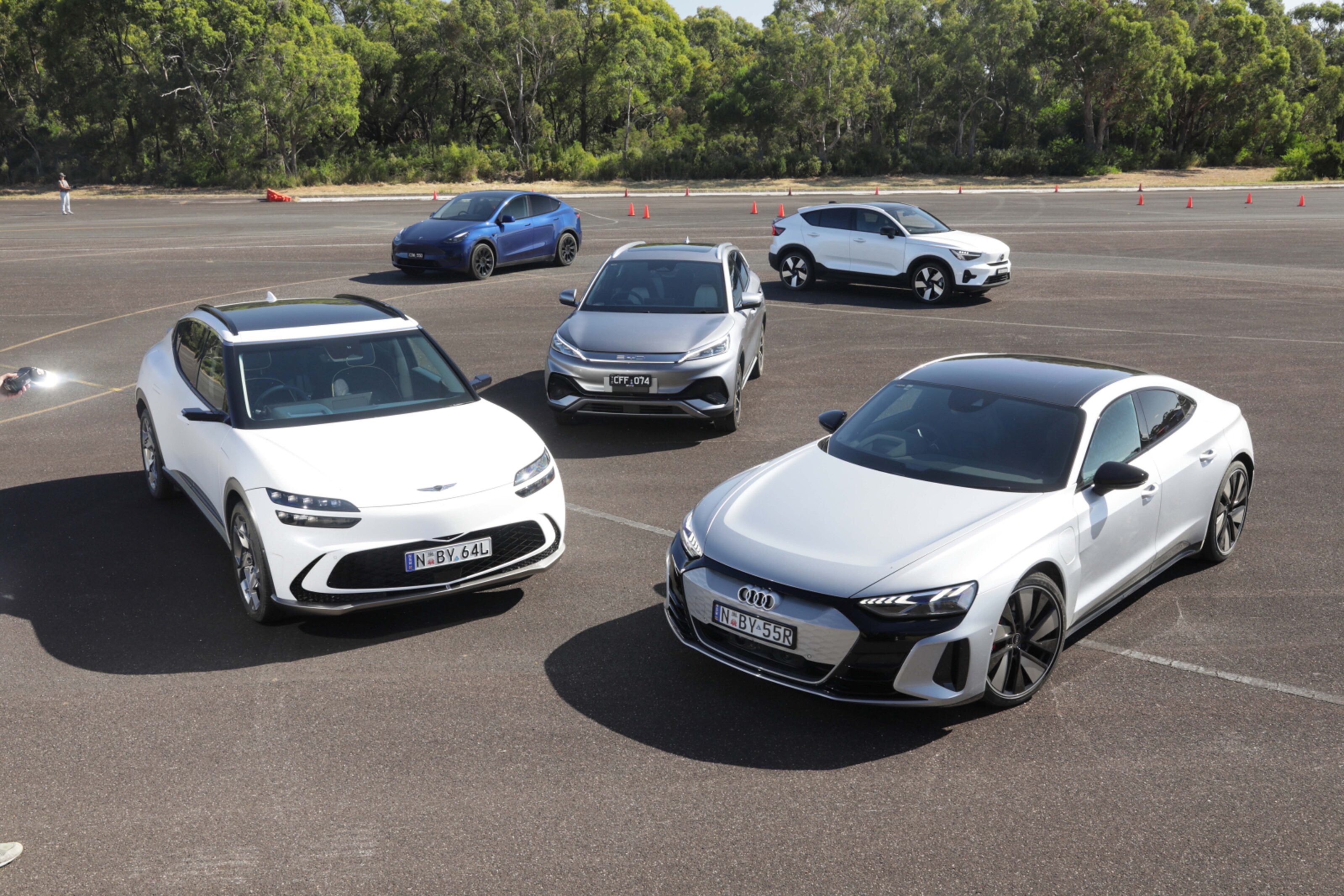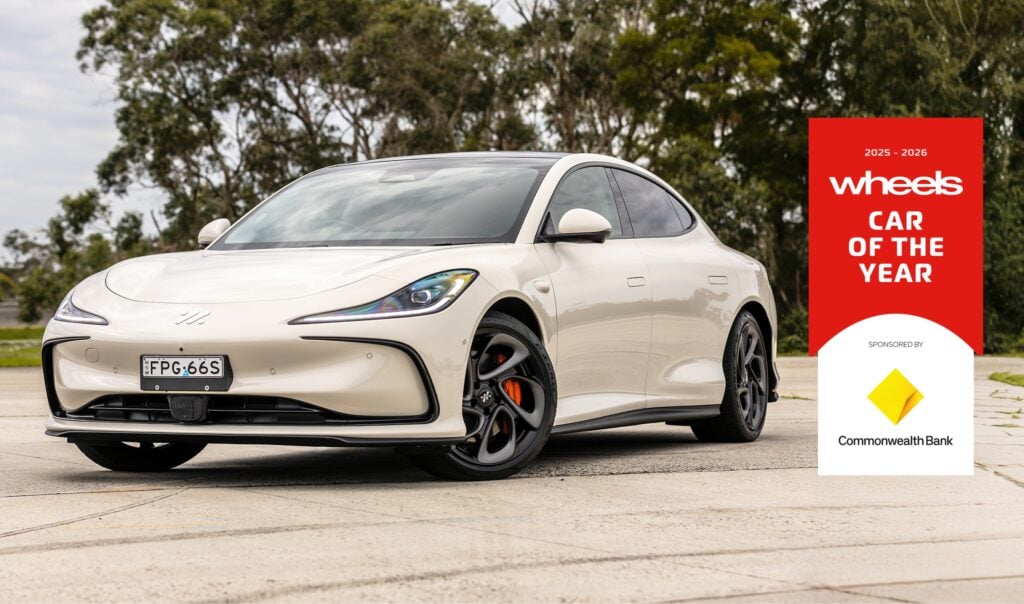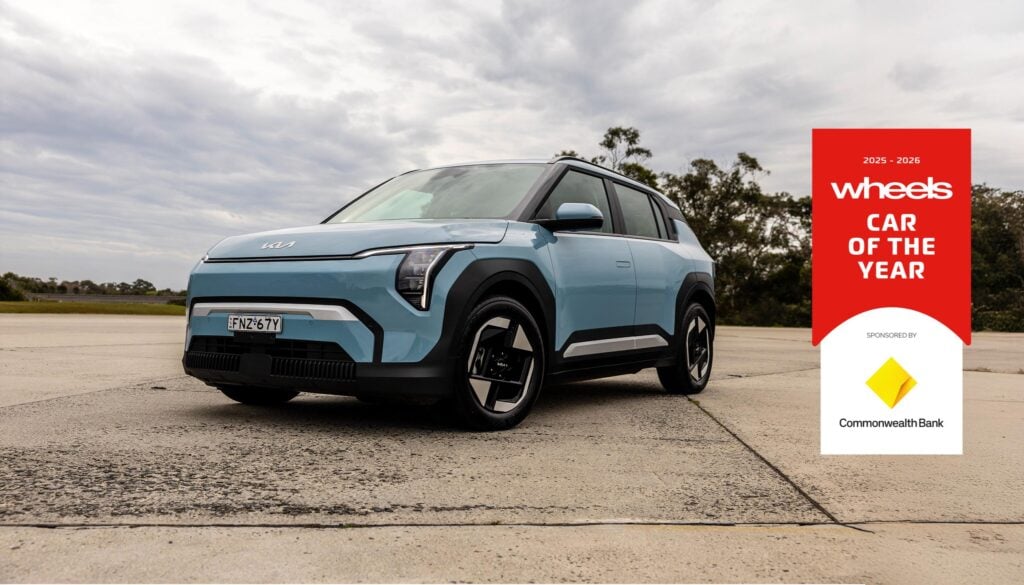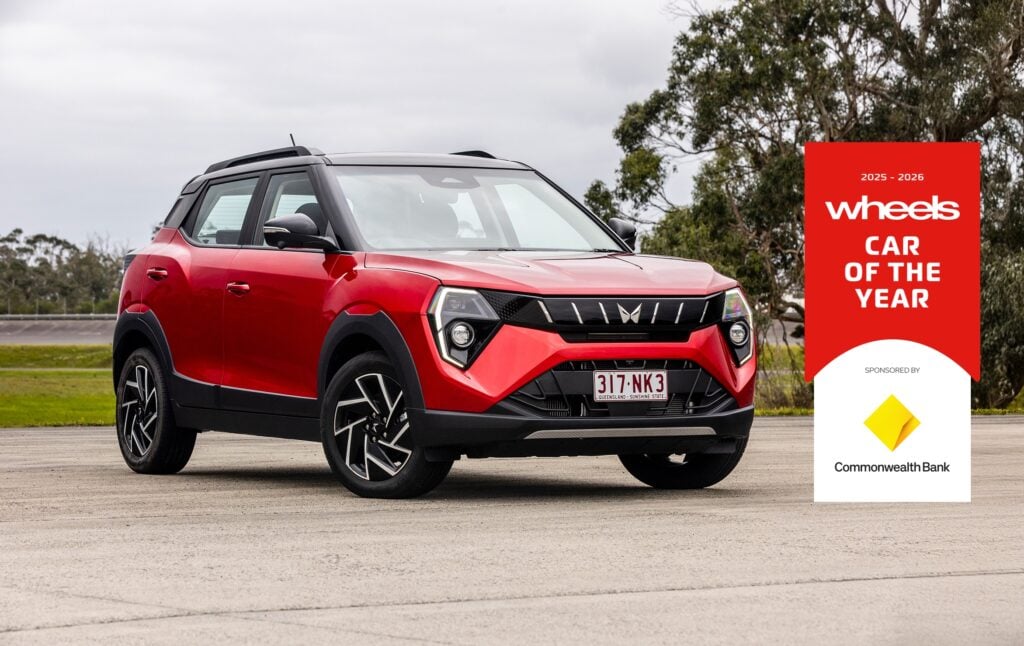Australians may not yet be switching from pumps to plugs en masse, but exponential growth has shifted electric car sales out of niche territory.
Even against a backdrop of limited charging infrastructure and a dearth of truly affordable options, more than 33,000 electric cars were sold last year – a 550 per cent annual increase that would be more staggering without the caveat of Tesla sales being counted officially for the first time.
Three in every five EVs sold in 2022 was either a Model 3 sedan or Model Y SUV, and the latter is represented here as one of our favourite new electric cars from the past 12 months. It’s a potential COTY dark horse considering the Model 3 was a 2020 finalist.
WHEELS CAR OF THE YEAR 2023
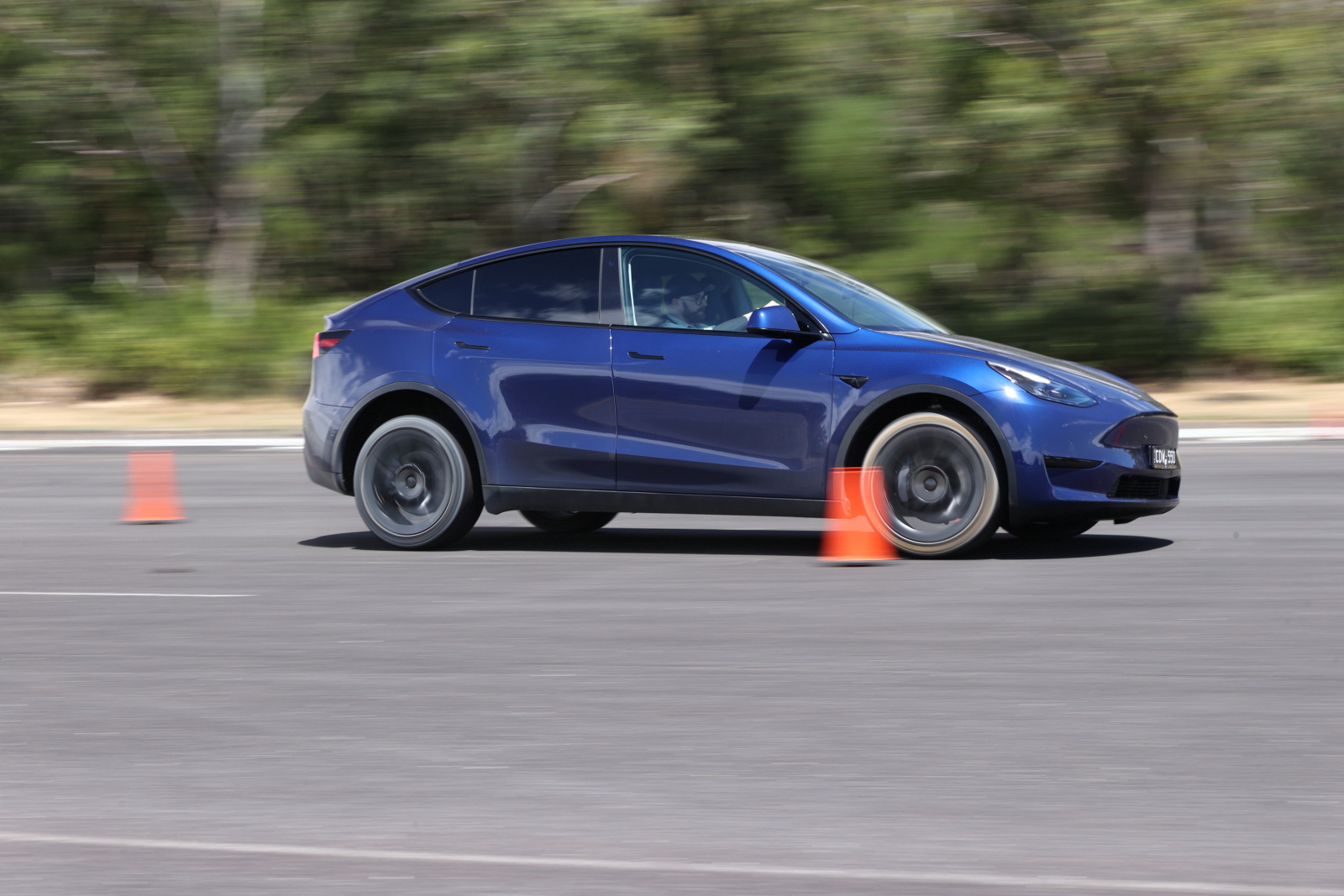
Reflecting the diverse offerings in this segment, the rest of our Best New EVs quintet – not including the BMW i4 that was sadly unavailable – covers a $200K cost spectrum.
Constructing our hopes for attainable electric motoring is the Atto 3 from China’s Build Your Dreams (BYD), an SUV that, in base form at the very least, will give buyers some meaningful change back from $50,000.
The top end features Audi’s twin to the Porsche Taycan, the RS E-Tron GT, while the middle ground is occupied by two models that can be considered direct rivals to the Model Y: Volvo’s coupe-style sibling to the XC40, the C40 Recharge, and the GV60 that is the first EV-only model from Hyundai‘s luxury arm Genesis (and a cousin to the Ioniq 5 and EV6).
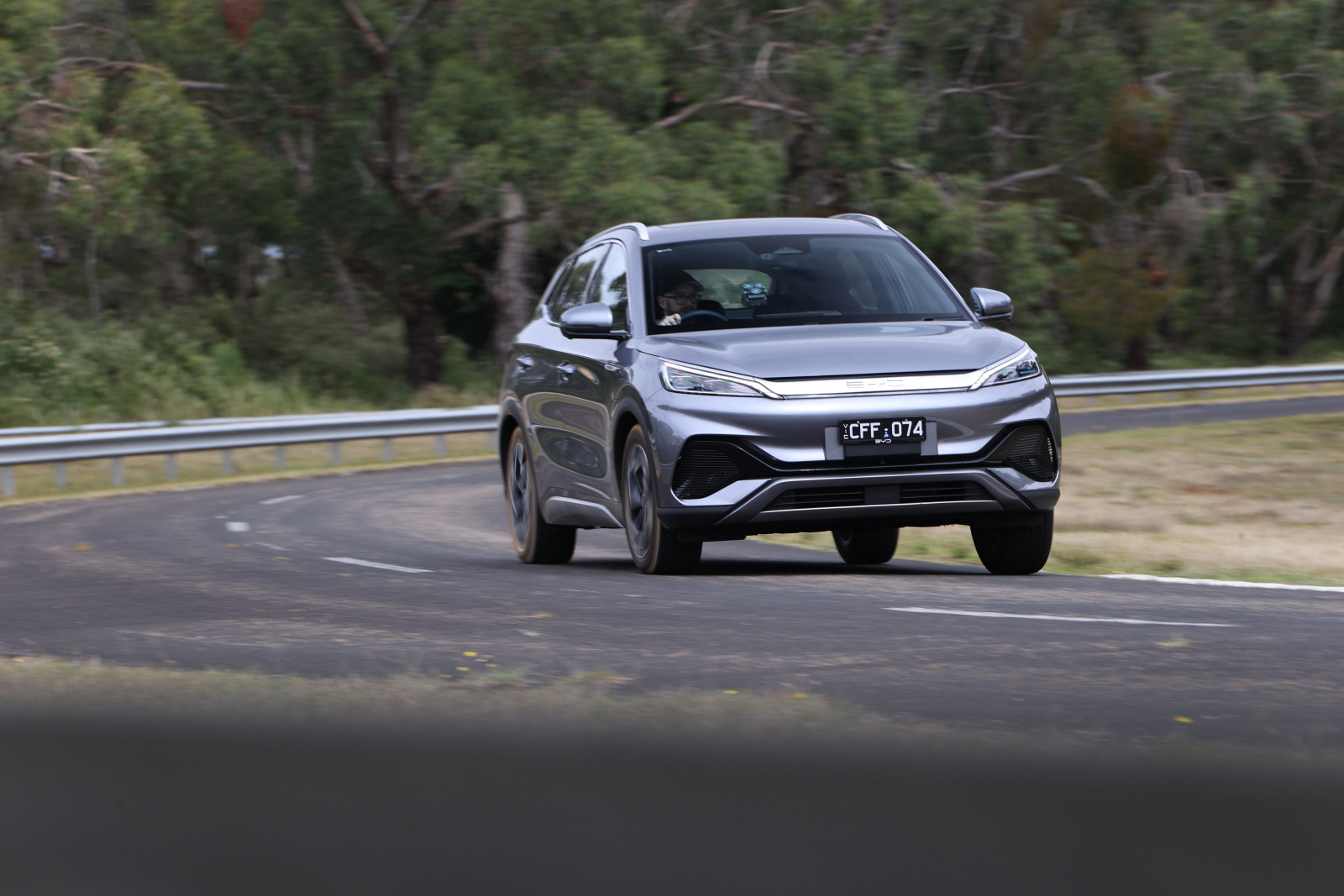
Some similar in concept, some very different – but a common theme was that none failed spectacularly when our COTY judges sat around on the first ‘Contender Presentations’ day to assess each EV against the Value criterion.
The Atto 3 and Model Y stood out especially. In each case, you’re getting a fair amount of SUV metal for your outlay. The 4.46m BYD verges on being a mid-sizer; the 4.75m Tesla straddles medium and large categorisations.
Volvo’s C40 Twin Motor variant tested here isn’t directly comparable to the single-motor Tesla, though at $83,490 before on-road costs it does take the ‘coupe’ approach to pricing.
“It’s costlier than an XC40 Recharge Twin Pure Electric [by $2000], yet with a smaller boot and less range,” said Affat.
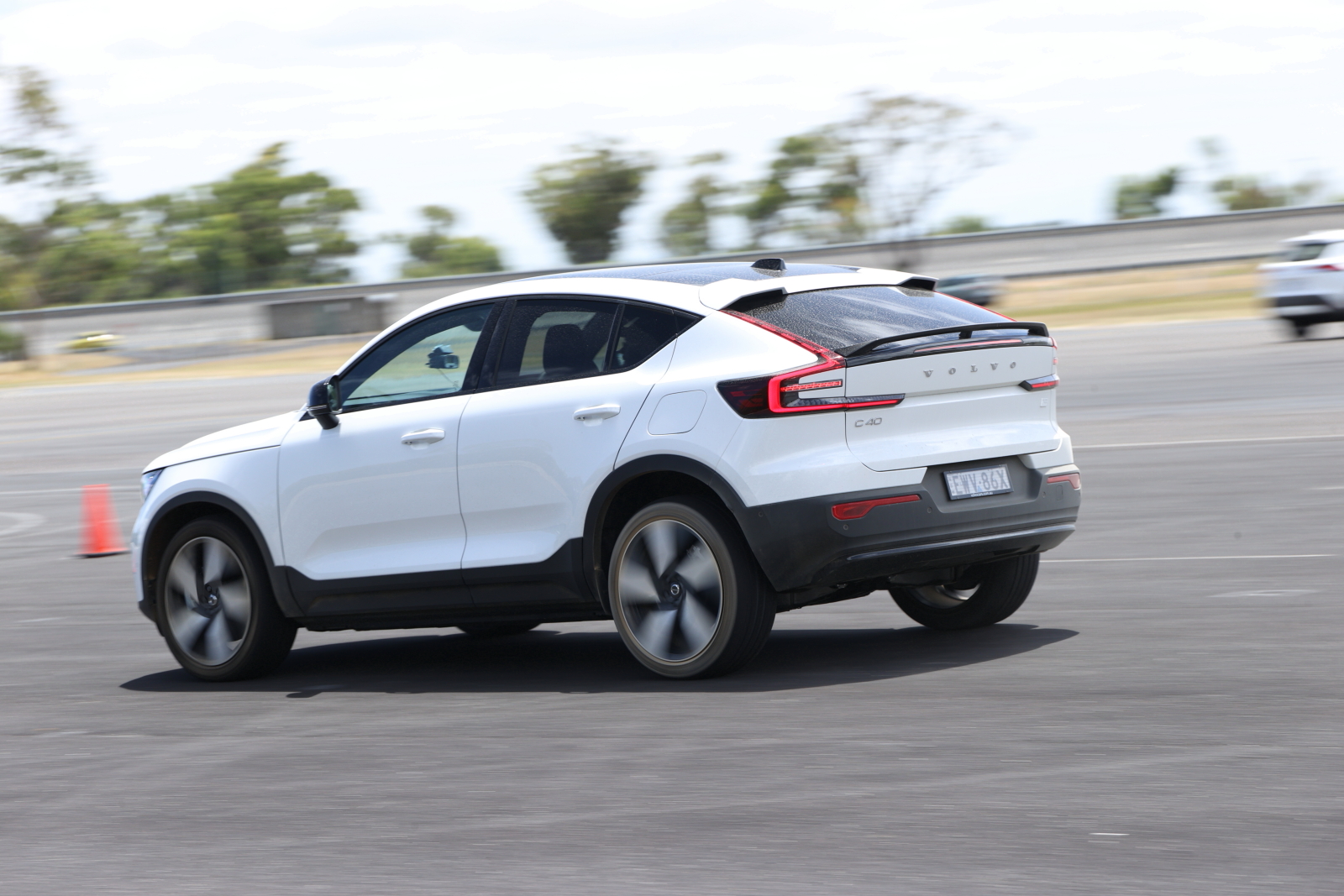
The Genesis interpretation of the E-GMP platform, the GV60, starts well above its Hyundai relative, the Ioniq 5. Although priced from $103,700 before on-road costs, a comprehensive Luxury Package is standard on both trim grades while owners are given the choice of free charging for five years (via Chargefox) or a free home charger (including installation).
Even Audi’s RS E-Tron GT makes a case for relatively good value, undercutting the Porsche Taycan with which it shares the same bespoke J1 platform, 800-volt architecture, and battery and e-motor technology.
The main question is whether the $248K flagship RS we had on test is worth $68,000 more than the base version. Audi says most buyers will think it is; we’re not so sure.
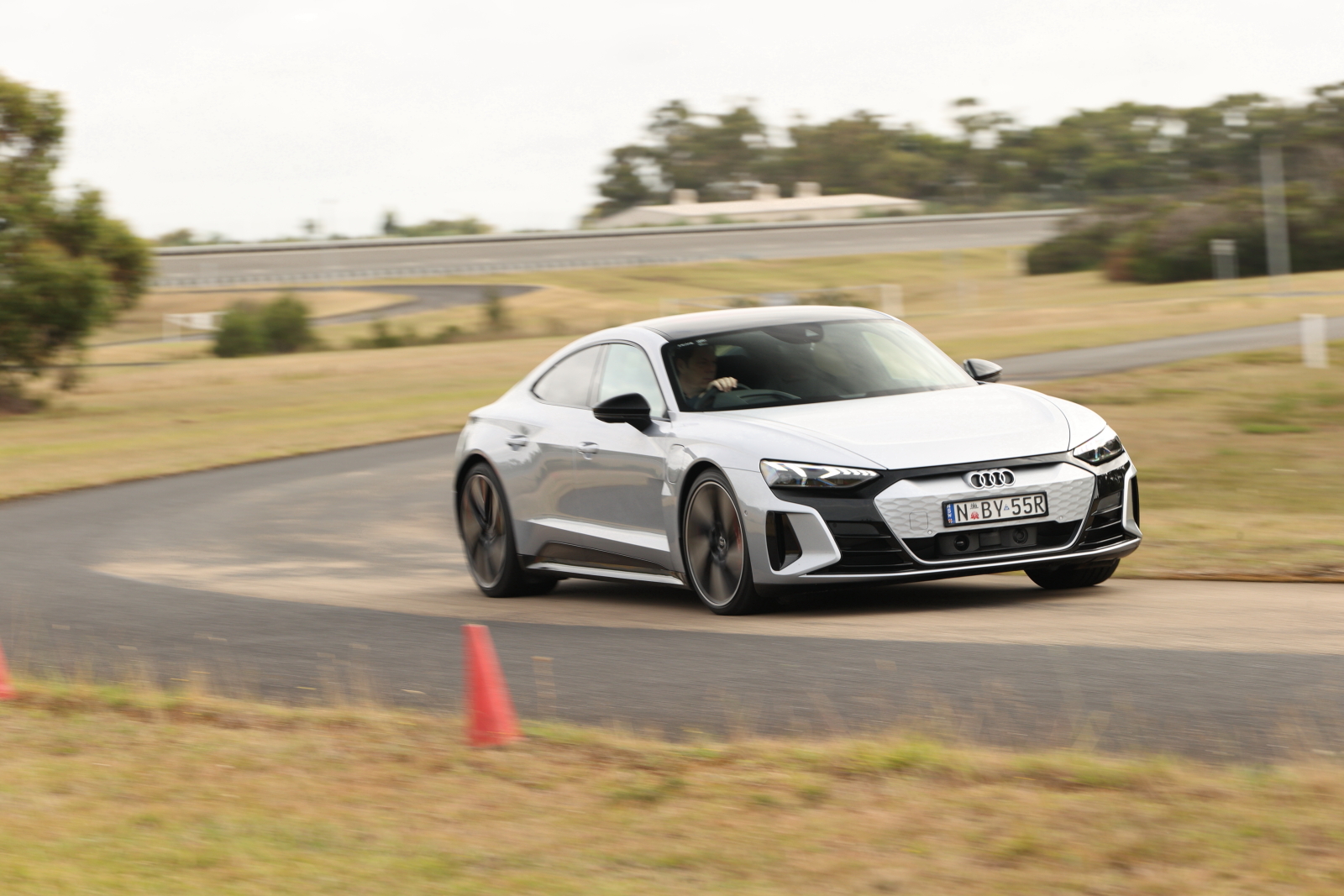
Enough has been written about the accelerative delights of electric cars that it should come as no surprise that three occupied our top-five quickest vehicles in our 0-100km/h testing.
The C40 placed fifth with a 4.7sec run while the GV60 took third with a flat 4.0sec.
Both are quick, yet the E-Tron GT RS is seriously rapid – pinning the driver’s head into RS-embossed leather on its way to a stunning 3.2sec result.
“Could almost feel the blood sloshing to the back of my skull under full acceleration,” said Campbell. “RS E-Tron nails the EV acceleration party trick.”
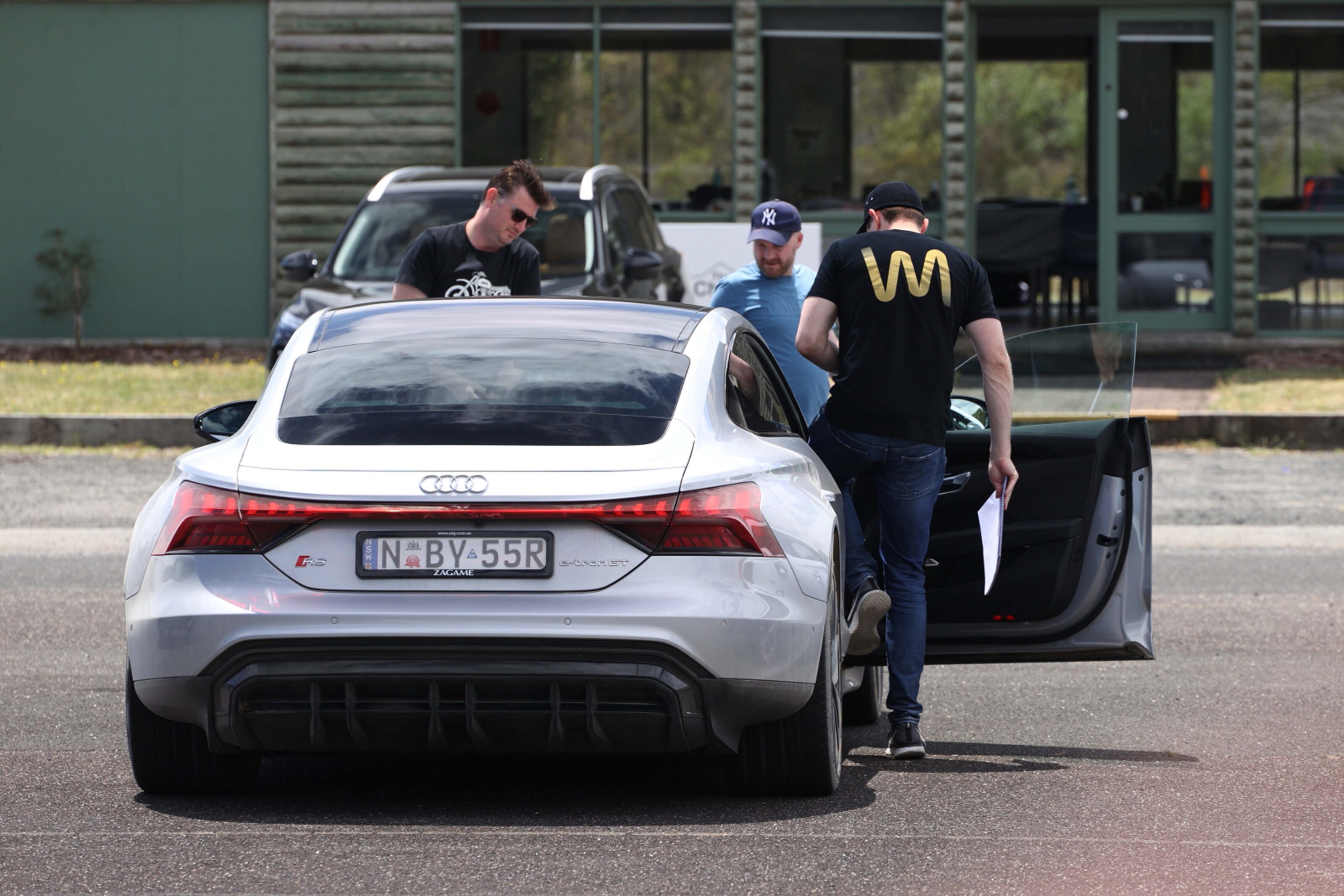
Of the single-motor models, the Model Y RWD matched its 6.9sec claim and the Atto 3 was just a tenth shy of its 7.3sec quoted acceleration.
In the reverse, 100-0km/h discipline, the Model Y was the first of the late-brakers with the 229kg-lighter Atto 3 five metres – and 17 places – behind. Virtually all that distance difference can be put down to tyres: the Tesla wears surprisingly sporty (20-inch) Michelin Pilot Sports while the BYD features (18-inch) Atlas Batman rubber that struggles to generate strong grip.
“Above seven-tenths driving, mid-corner steering inputs simply become a tyre-squeal volume adjustment,” said Affat of the BYD.

“Dynamics are presentable for a car on tyres made of tofu,” remarked editor Enright, summing up the feeling from testers that the Atto 3 would benefit from a better set of boots yet was also unlikely to disappoint its target market despite mixed-bag steering and ride characteristics.
Judges were more surprised at the GV60’s soft yet easily flustered suspension, which somewhat detracted from the EV’s luxury pitch.
The Model Y was most noted for its effortless performance, strong braking and impressive lane-change result (7th), while the RS E-Tron GT was universally appreciated around the ride-handling circuit for its grand tourer vibes.
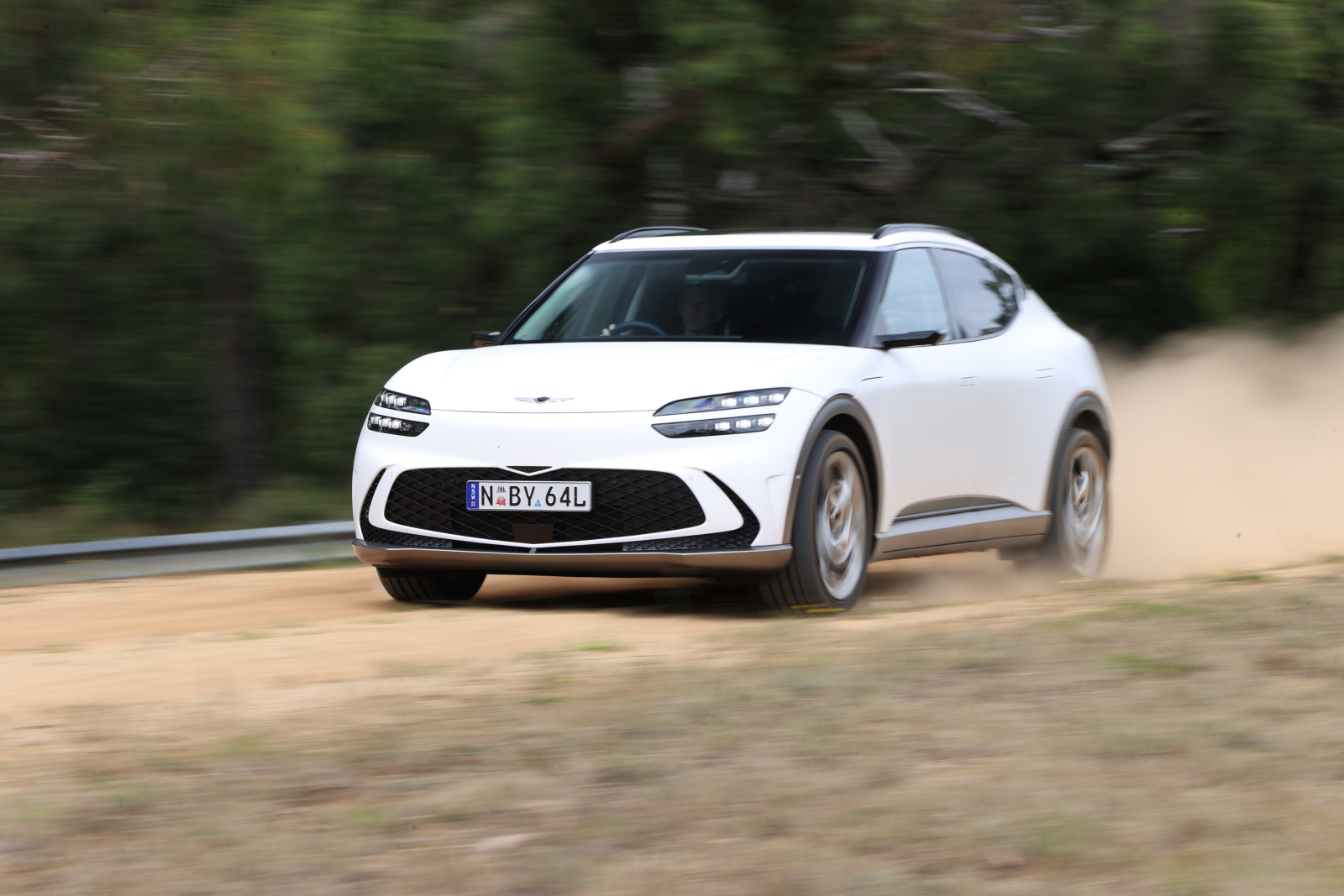
“(The Model Y) Fails to bend physics in the same way Taycan does, but it’s a stunning piece of equipment with a gorgeous air-suspended ride and sense of occasion to match,” said Law.
The driver’s pick of our motorised bunch, however, was a Volvo. And, yes, that’s the kind of sentence rarely written by Wheels over the decades.
Alex Inwood led the chorus of praise for the C40 Recharge’s dynamics.
“An absolute hoot to drive. The steering is accurate and the ride quality is controlled and composed. Loads of grip to exploit, too.”
Our other Alex concurred: “Fundamentally sound and possibly one of the most widely talented cars here in terms of on-road dynamics.”
“No drive modes, no fuss, no FOMO,” quipped Enright, referencing the Volvo’s just-drive approach that offered no adjustments for steering weighting, regen braking or power delivery yet all felt just right.
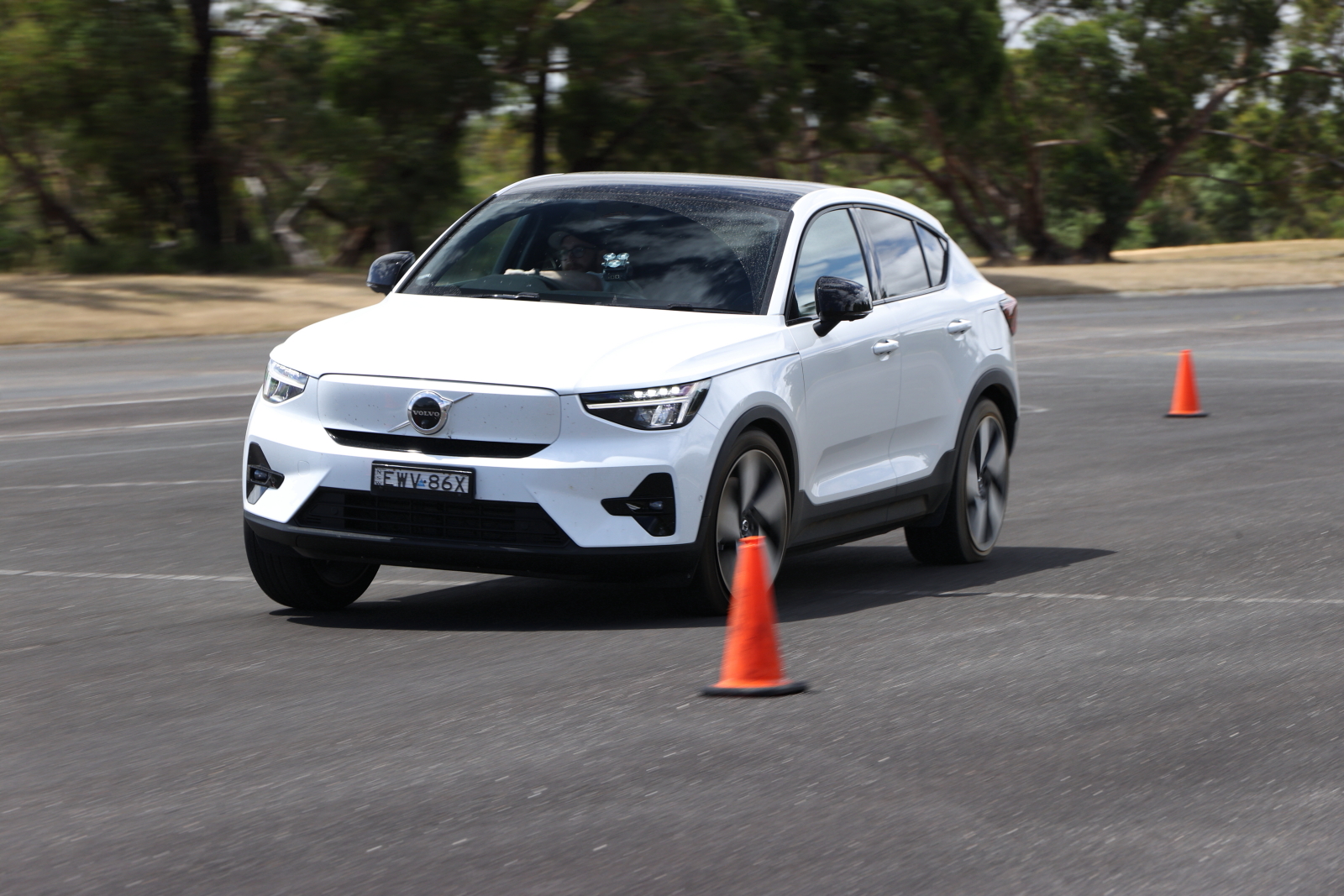
“Six in every ten EVs sold here in 2022 were either a Tesla Model 3 sedan or Model Y SUV” – Jez Spinks
Battery efficiency, however, remains something of an Achilles heel for Volvo Group EVs (and, interestingly, the C40, XC40 and Polestar 2 will later this year all switch from front-drive to rear-drive in base spec, a move that helps boost range).
The C40’s exterior styling compromises rear vision, though not the cabin as much as might be expected. The sloping roof inevitably robs some rear headroom and boot space compared with the XC40 but interior space is largely similar.
Audi’s RS E-Tron GT was also noted for its slot-like rear window, while judges also felt the four-door’s grand touring credentials would have been stronger with more interior stowage, a bigger boot (just 350L in RS spec), and a driving range over 500km rather than below it.
Two blue-hue cabins polarised the group.

“Weirdburger cabin,” said Campbell of the BYD’s interior. “Like trying a weird new ice cream flavour at the gelato bar – takes a while to figure out if you actually like it, or it’s just different.”
Fisk found the BYD’s quirkiness kind of charming but “a bit whacky” for her tastes.
Its cabin quality and construction impressed across the judging board, though, and greater expectations for the more expensive Genesis interior led to greater criticism.
“Where its Hyundai Ioniq 5 and Kia EV6 cousins excel in design, the GV60 feels like it has had too much thrown at it and the result is more garish than luxurious,” said Fisk.
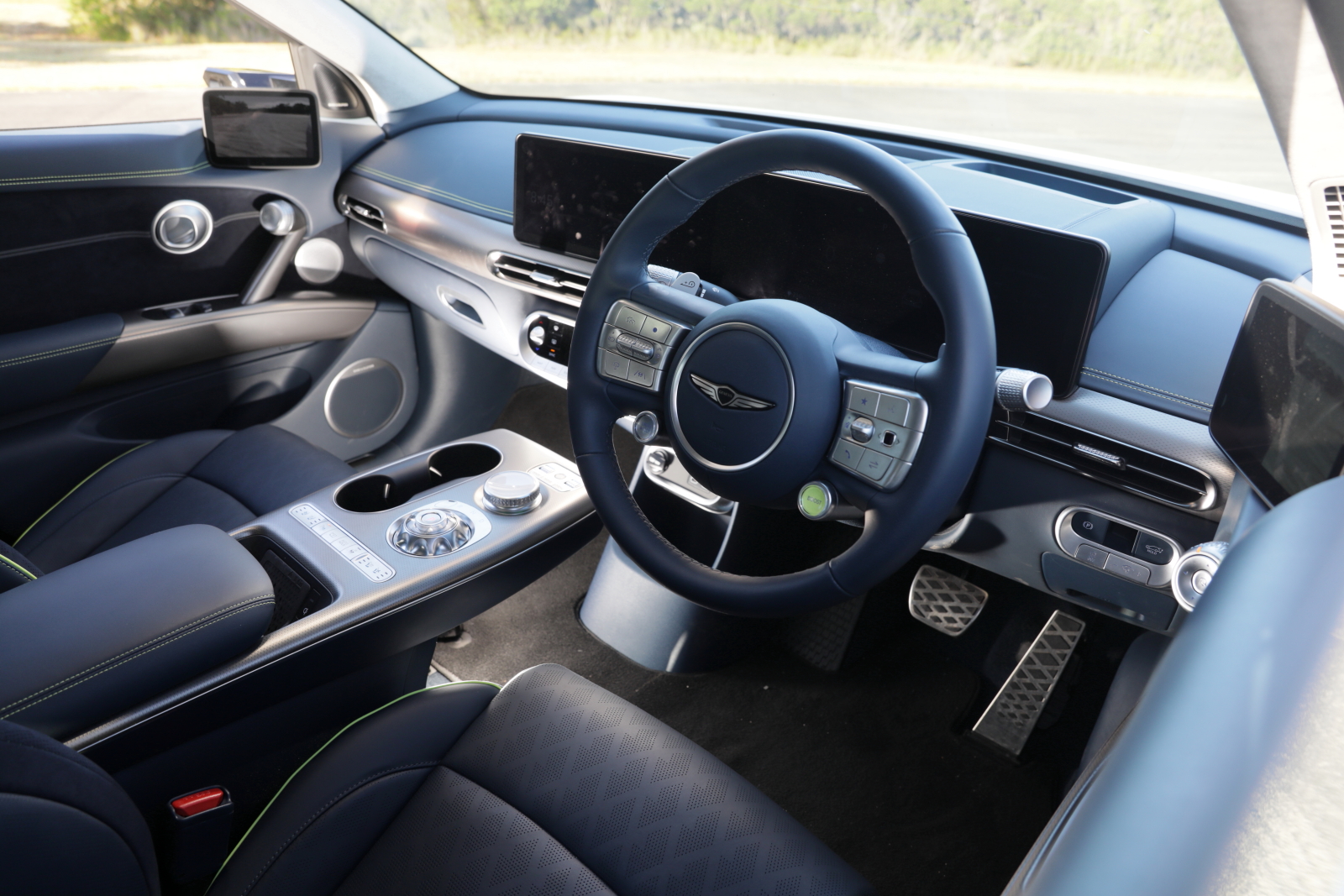
Rear-seat space was also considered surprisingly restrictive in a way the Ioniq 5 and EV6 aren’t, and the flagship GV60’s digital mirrors, while impressively high in resolution, didn’t convince anyone that they should become a widespread replacement for conventional mirrors.
The Model Y offers interior and boot space in abundance. And some clever storage solutions, such as the angled dual smartphone charging trays.
And with its solid showing around Lang Lang, Tesla’s bulbous SUV grabbed a bunch of votes to proceed to the Finalists stage.
The BYD received two votes and the C40 three, but the Model Y would be the only plug-in vehicle joining the fuel-pump brigade out on real-world roads.
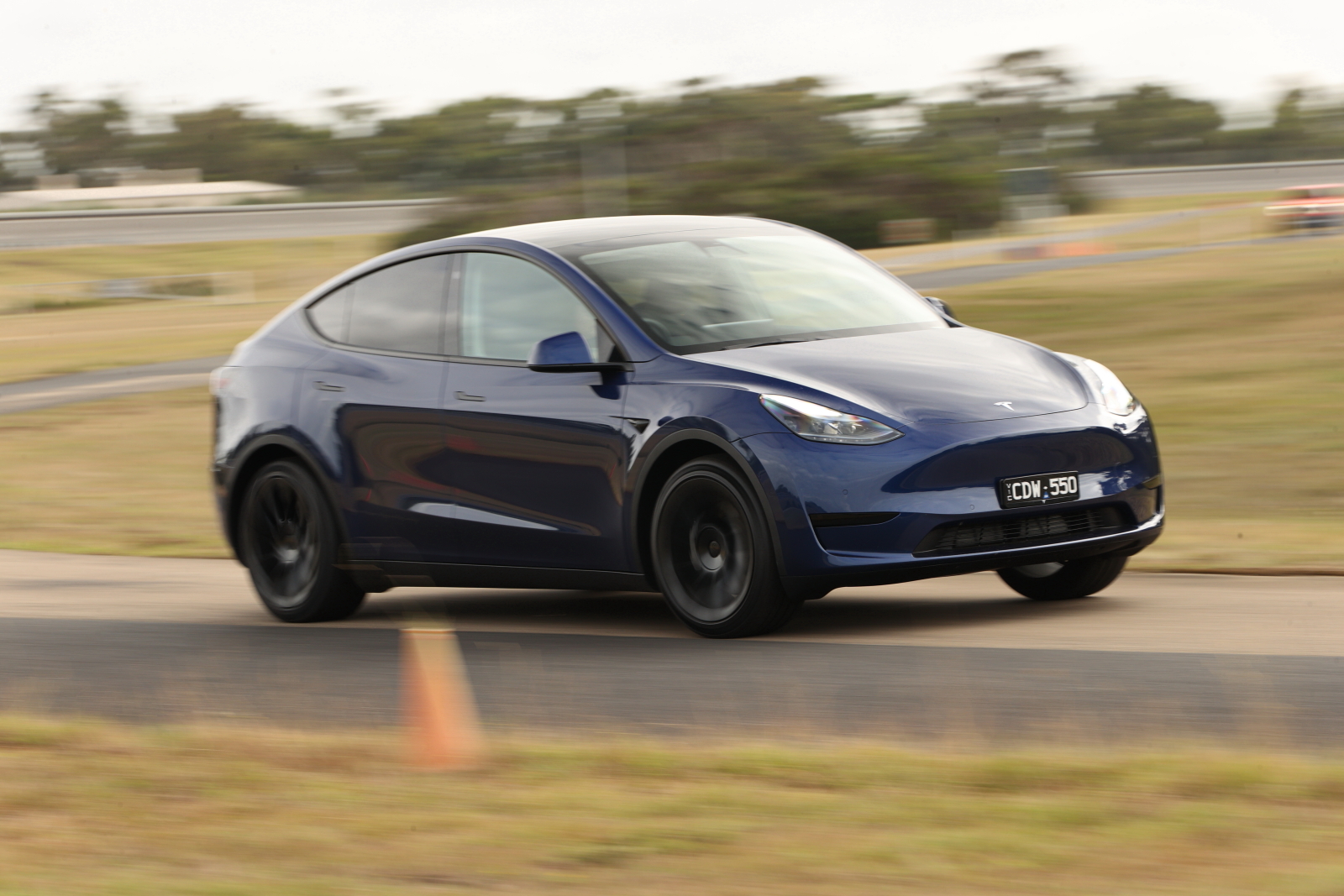
Specifications
| Audi E-Tron GT | Audi RS E-Tron | BYD Atto 3 Standard | BYD Atto 3 Extended | Genesis GV60 AWD with Luxury Package | Genesis GV60 Performance AWD with Luxury Package | Tesla Model Y Rear-Wheel Drive | Tesla Model Y Performance | Volvo C40 Recharge twin Pure electric | |||||||||||||||||
|---|---|---|---|---|---|---|---|---|---|---|---|---|---|---|---|---|---|---|---|---|---|---|---|---|---|
| Price | $180,200 + on-road costs | $248,200 + on-road costs | $48,011 + on-road costs | $51,011+ on-road costs | $103,700 + on-road costs | $110,700 + on-road costs | $69,300 + on-road costs | $95,300 ($98,955 w/ LCT) + on-road costs | $83,490 | ||||||||||||||||
| Body | 5-door, 5-seat large sedan | 5-door, 5-seat large sedan | Five door, five seat SUV | Five door, five seat SUV | Five door, five seat SUV | Five door, five seat SUV | 5-door, 5-seat medium SUV | 5-door, 5-seat medium SUV | 5-door, 5-seat small SUV | ||||||||||||||||
| Drive | all-wheel | all-wheel | front-wheel | front-wheel | all-wheel | all-wheel | rear-wheel | all-wheel | all-wheel | ||||||||||||||||
| Drivetrain | 2 x electric motors + 93kWh (gross) battery | 2 x electric motors + 93kWh (gross) battery | single electric motor + 50kWh u2018bladeu2019 battery | single electric motor + 60kWh u2018bladeu2019 battery | dual motor + 77.4kWh battery | dual motor + 77.4kWh battery | single motor + u201c57.5kWhu201d battery | dual motor + u201c75kWhu201d battery | dual motor + 78kWh battery | ||||||||||||||||
| Power | 350kW (390kW in boost mode) | 440kW (475kW in boost mode) | 150kW | 150kW | 234kW | 360kW (with Boost mode; 320kW without) | 194kW (unofficial) | 413kW (unofficial) | 300kW | ||||||||||||||||
| Torque | 630Nm (640Nm in boost mode) | 830Nm | 310Nm | 310Nm | 605Nm | 700Nm (with Boost mode; 605Nm without) | 340Nm (unofficial) | 660Nm (unofficial) | 660Nm | ||||||||||||||||
| Transmission | 2-speed automatic | 2-speed automatic | Single-speed reduction | Single-speed reduction | Single-speed reduction | Single-speed reduction | single-speed reduction | single-speed reduction | Single-speed reduction | ||||||||||||||||
| Consumption | 19.2kWh/100km | 20.2kWh/100km | 16.0kWh/100km | 16.0kWh/100km | 18.8kWh/100km combined (claimed) | 19.1kWh/100km combined (claimed) | 14.6kWh/100km combined (claimed) | 15.4kWh/100km combined (claimed) | 434km (single); 420km (twin) | ||||||||||||||||
| Kerb weight | 2275kg | 2345kg | 1680kg | 1750kg | 2160kg | 2210kg | 1909kg | 1997kg | 2151kg | ||||||||||||||||
| Towing capacity | N/A | N/A | N/A | N/A | 1600kg braked | 1600kg braked | 1600kg braked | 1600kg braked | 1800kg braked | ||||||||||||||||
| 0-100 | 4.1sec (claimed in Boost mode) | 3.3sec (claimed in Boost mode) | 7.3sec | 7.3sec | 5.5sec | 4.0sec | 6.9sec | 3.7sec | 4.7sec | ||||||||||||||||
| L/W/H/W-B | 4989/1964/1396/2900mm | 4989/1964/1414/2900mm | 4455/1875/1615/2720mm | 4455/1875/1615/2720mm | 4515/1890/1595/2900mm | 4515/1890/1595/2900mm | 4751/1921/1624/2890mm | 4751/1921/1624/2890mm | 4440/1873/1591/2702mm | ||||||||||||||||
| Boot space | 405L | 350L | 440L | 440L | 432L | 432L | 854 litres | 854 litres | 413L | ||||||||||||||||
| Warranty | 5 years/unlimited km | 5 years/unlimited km | 6 years/150,000km | 6 years/150,000km | 5 years/unlimited km | 5 years/unlimited km | 4 years/80,000km (battery 8 years/160,000km) | 4 years/80,000km (battery 8 years/192,000km) | 5 years/unlimited km | ||||||||||||||||
| Safety rating | Not yet crash tested | Not yet crash tested | 5 star ANCAP (2022) | 5 star ANCAP (2022) | 5 star ANCAP (2022) | 5 star ANCAP (2022) | 5-star ANCAP (2022) | 5-star ANCAP (2022) | 5-star ANCAP (2022) |
MORE READING
Now that you’re done reading about these COTY 2023 contenders, you should go back to catch up on anything you might’ve missed. Check out the links below, or find it all at our COTY page.
We recommend
-
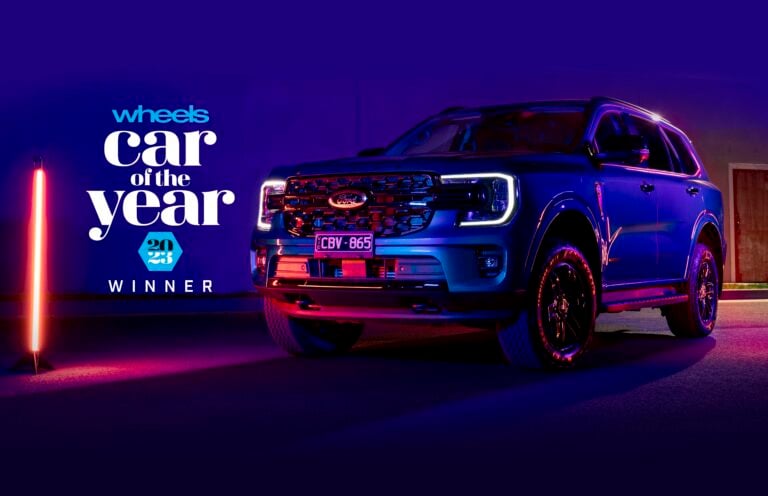 COTY
COTY2023 Ford Everest: Wheels Car of the Year winner
Brilliant large SUV that’s designed for Australians by Australians snags Ford its first COTY since 2004. Here’s why.
-
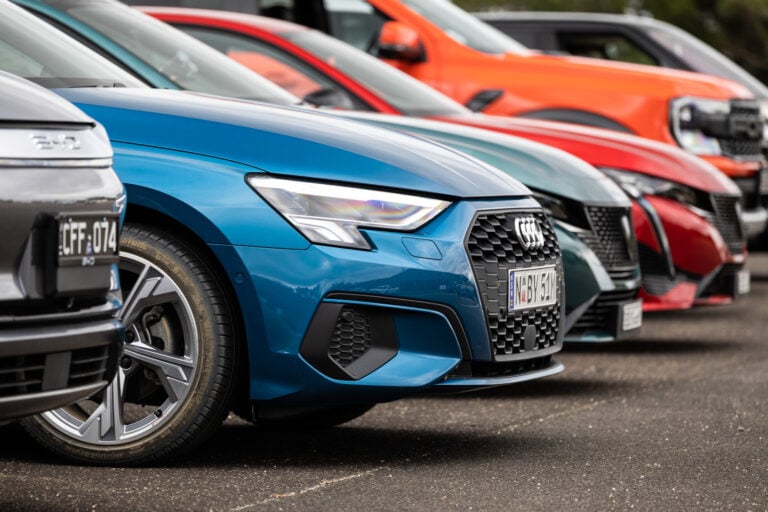 COTY
COTYIntroducing Wheels Car of the Year 2023: The Contenders
Our top gong is back for ’23. Here’s who made the starting grid
-
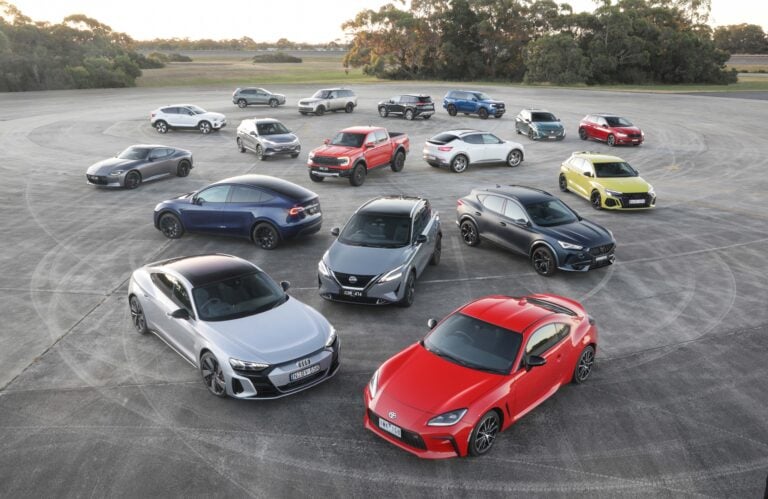 COTY
COTYWheels COTY: What’s new for 2023
We’ve tweaked what’s eligible and overhauled the criteria as COTY roars back at full noise for 2023


